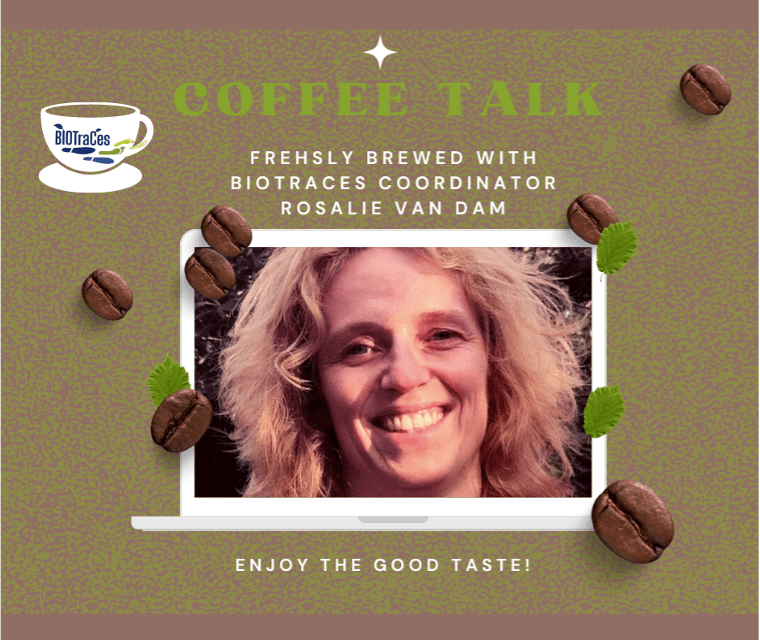Coffee Talk with Rosalie van Dam
Join us for a coffee chat with Rosalie van Dam, a social scientist from the Wageningen Environmental Research at Wageningen University and Research (WUR). Along with her colleagues Roel During and Judith Westerink, she coordinates the EU research project BIOTraCes. It is a journey that commenced in December 2022 and is set to continue until November 2026. BIOTraCes comprises dedicated researchers from nine European nations, joined by an array of societal partners. They will cultivate knowledge, tools, and groundbreaking approaches towards an inclusive society in harmony with nature.
And in case you were wondering, BIOTraCes is not just a catchy name; it's an acronym that stands for "Biodiversity and Transformative Change for plural and nature positive societies."

So, Rosalie, what’s the grand vision for BIOTraCes?
The overarching goal is to spark a transformative shift in society. At its core, BIOTraCes seeks to unravel the mechanisms driving biodiversity loss in Europe. We aim at uncovering how prevailing perspectives and conventional practices hinder the emergence of new ideas and approaches. To ensure maximum impact, the project collaborates closely with its Influencer and Stakeholder board. Each of the board members is actively engaged in adjacent and pertinent fields. As BIOTraCes draws to a close, the ultimate goal is to craft a Theory of Transformative Change.
The Theory of Transformative Change – can you break it down for us?
In the BIOTraCes context, a Theory of Transformative Change boils down to comprehending the multifaceted political, cultural, and societal drivers of biodiversity loss. It’s about crafting tools that enable the transition towards an inclusive and nature-positive society in Europe and beyond. But: A one-size-fits-all Theory of Transformative Change won’t cut it. Our society is wonderfully diverse. And BIOTraCes aims to embrace a multitude of voices and perspectives – including those that are often marginalised.
How did you devise the BIOTraCes case studies?
We are seeking participatory and inclusive approach to action research. Collaboration and shared progress are key. The entire consortium, including societal partners spanning from Lithuania to Sicily, finds itself on an equal footing. These nine case studies span a spectrum of sustainable food production, agriculture, forestry, water and fish conservation, rewilding, traditional herding as well as nature-inclusive building. What’s particularly remarkable is the project’s commitment to exploring marginalised perspectives, identities, and groups.
What’s your biggest challenge as the coordinator of BIOTraCes?
Managing the administrative aspects of EU-projects is always a challenging task. However, steering a consortium as vast as BIOTraCes presents its own set of challenges. With approximately 50 individuals from nine European countries, it’s essential to walk the talk. The principles applied for society in the Theory of Transformative Change – listening and genuinely acknowledging a variety of voices – are mirrored within the consortium. The partners are incredibly dedicated and energetic, but personalities and perspectives naturally vary. I try to value every voice, including the quiet and less apparent ones.
What’s your perspective as a social scientist?
I am very passionate about my research field. And I love bringing people together, forging connections. I do hope to contribute to a biodiversity movement that extends far beyond BIOTraCes itself. Research should not remain confined to academia, it should serve society. Take, for instance, our case study of Wageningen Environmental Research. One aspect of the case study is the eco-community De Beuk in Wageningen. They want to create a nature-inclusive, integrative, sustainable housing environment. Policy and many organisations support the idea of nature-inclusive building. But translating this vision into practice remains still very challenging. I am very impressed by the positive and constructive approach of the De Beuk community. By collaborating with them, we want to unravel the underlying causes and mechanisms of the obstacles they are facing. And so, we hope to contribute to a shift towards a nature-inclusive society. It´s about theoretical ideals becoming a practical reality.